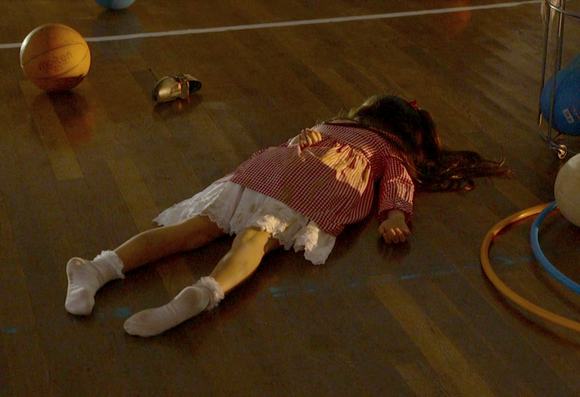[2012] VENICE MOSTRA | Kurosawa leads the way
Stormy skies have threatened to overflow the lagoon and the part of this year’s Selection that’s already been screened is stoking an enthusiasm that’s mitigated.
It’s near the end of the festival and this 69th edition of the Venice Film Festival is still struggling to gain traction and also get in step with the bold ambitions of its new artistic director, Alberto Barbera. And yet this year’s poster was handsome enough and significant changes have been made to the festival’s graphic chart.
A symbol of the crisis in culture which has shaken Italy are the remnants of a festival site—the hole ripped in the main square of the festival has finally been filled after three years of headaches—which will never see light of day and on which millions of euros have already been dumped. It is a strong symbol, not just of a site reconquered but of how and what do we do with it. With that in mind, a brand-new theater is supposed to emerge from this ground within the next three years, according to the Biennale.
Clearly, however, the crisis has done little to abate the ruinous lifestyle imposed on the festival-goer who has to pay a fortune to get across the Lido to retrieve a festival badge, and, after feasting on three lukewarm raviolis and fizzy water only sees retreating inside a darkened theatre, where you don’t have to spend money, as the only possible choice left, hoping that a majority of good films will come to keep him company.
On day one there was the marathon screening of “Shokuzai” (pictured) by Kiyoshi Kurosawa (the film was initially commissioned for Japanese television), a rarefied filmmaker after the failure of the magnificent “Tokyo Sonata.” This comeback, after several aborted projects, takes the form of a gently perverse criminal story of exceptional subtlety spread across five fifty-minute psychological montages. A set of girls who have grown into adulthood and have lost contact with each other are heavy with the guilt of not having identified the man who murdered one of them before their very eyes.
“Shokuzai” takes arachnid-like steps across this web of neuroses until a slightly disappointing truth, centered on the figure of the poisonous but charismatic grieving mother, emerges. Hopefully there will be someone in New York, L.A. or Chicago crazy enough to willingly lock themselves up for four and a half hours inside a theater to watch these films, whose elegance and supreme mise en scene by Kiyoshi Kurosawa never strays.
Thus far we haven’t seen anything more beautiful than that, and have since had to come to terms with it. Although many heavy-hitters (Takeshi Kitano, Olivier Assayas, Brian De Palma and Brillante Mendoza, among others) have yet to present their films, for now the 2012 Venetian harvest is asserting itself especially through the crop of honest films, that is to say, films that are connected with the actual world, as it moves, filled with good intentions but poor in cinematic value. Films which are nothing if pleasant but whose added-value for this Biennale, besides echoing six month-old news, is arguable. We learn little more by watching them than if we had read yesterday’s newspapers, and seldom do we come across a shot, a gesture or an idea which we can declare to be memorable.
The exceptions to this are not necessarily better. This past Thursday was the screening of the already-infamous “Superstar,” by French filmmaker Xavier Giannoli, a moralistic satire with talk-show aspirations which seems to despise everything in its camera’s field. Also in the official competition was Ulrich Seidl’s perfectly misanthropic “Paradise: Faith,” (read our review here) and the hysterical and dusty tragicomedy shot in picturesque Sicilian style “My father will kill me,” by the Italian Daniele Cipri, who happens to have worked as director of photography for Marco Bellocchio. As it were, Bellochio’s new film with Isabelle Huppert will screen this weekend.
This article was previously published in the French daily Libération (translation: A.N)





